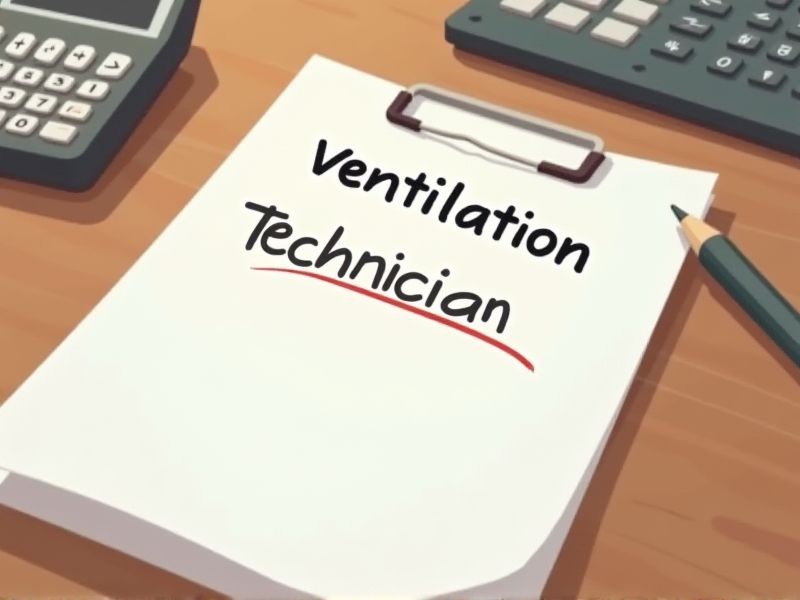
Heating and ventilation systems play a crucial role in maintaining indoor air quality and energy efficiency. Technicians require specific certifications to ensure they meet industry standards for safety, performance, and environmental impact. These certifications validate a technician's skill set, enabling them to handle complex systems and emerging technologies. Key certifications a Heating and Ventilation Technician may need include those recognized for safety and expertise in the field.
EPA Section 608 Certification
EPA Section 608 Certification is crucial for heating and ventilation technicians as it ensures they can legally handle and dispose of refrigerants properly, reducing environmental harm. It addresses the mandatory compliance with the Clean Air Act, enforcing standards that prevent the release of ozone-depleting substances. Without this certification, technicians may face fines or legal penalties, impacting their career and business. The certification improves job prospects by meeting industry standards and increasing trust among employers and clients.
NATE Certification
NATE Certification enhances a technician's credibility, leading to increased customer trust and more work opportunities. Passing the certification process indicates a high level of knowledge and skills in the HVAC field, which contributes to improved service quality. Employers often prefer certified technicians due to their proven expertise and ability to efficiently handle complex HVAC systems. Certified technicians frequently command higher salaries, reflecting their advanced capabilities and commitment to professional development.
HVAC Excellence Certification
HVAC Excellence Certification enhances a technician's credibility and validates their knowledge and competence in the field, leading to increased job opportunities. Employers tend to prefer hiring certified technicians because it reduces the risk of liability and ensures a higher standard of service. Certified technicians are more likely to stay updated on industry standards and technological advancements, which directly impacts system efficiency and longevity. Certification can also lead to higher wages as it distinguishes professionals with verified skills and expertise.
RSES HVACR Certification
RSES HVACR Certification provides technicians with widely recognized credentials that demonstrate expertise in heating and ventilation, increasing job opportunities and employability. Certification helps ensure that technicians are up-to-date with the latest industry standards and technologies, enhancing service quality. Adequate training through certification reduces the likelihood of errors that could lead to system failures or safety hazards. Many employers seek certified technicians for compliance with regulatory requirements and to maintain high standards of customer satisfaction.
OSHA 10-Hour Construction Safety Certification
OSHA 10-Hour Construction Safety Certification provides essential safety training, reducing accident rates for Heating and Ventilation Technicians who regularly work on construction sites. With the certification, technicians gain knowledge of hazard recognition, enhancing their ability to identify and mitigate potential risks. Employers often require the certification to comply with state and federal regulations, ensuring a safer work environment. The certification aids in reducing liability for employers while promoting a culture of safety awareness among technicians.
Certified Energy Manager (CEM)
Heating and ventilation technicians manage energy-intensive systems, so incorporating a Certified Energy Manager (CEM) can lead to substantial reductions in energy costs and inefficiencies. With specialized expertise, CEMs help identify areas for improvement and implement best practices in energy usage and system optimization. Increasing regulatory compliance and environmental standards in HVAC systems necessitate the knowledge of a CEM to ensure adherence to updated guidelines. Integrating a CEM into the team facilitates proactive energy management, enhancing sustainability and system performance over time.
BPI Building Analyst Certification
BPI Building Analyst Certification equips heating and ventilation technicians with the skills to assess and improve home energy efficiency, which enhances their service offerings. This certification validates a technician's competency in identifying energy-saving opportunities and solving combustion safety issues, a crucial need for modern energy compliance. It builds credibility with clients, assuring them that the technician understands industry best practices and utilizes comprehensive diagnostic testing. Employers increasingly prefer or require BPI certification due to its alignment with national standards and its role in reducing liability risks by promoting safe and effective energy performance solutions.
NICET HVAC Certification
NICET HVAC Certification validates a technician's skills and knowledge, increasing their employability and credibility in the field. The certification ensures professionals are trained to meet safety and quality standards, reducing the risk of installation errors. It also provides a competitive edge, as companies often prefer or require certified technicians. Through the credentialing process, technicians demonstrate their commitment to ongoing professional development.
Certified Indoor Air Quality Professional (CIAQP)
Heating and ventilation systems often circulate pollutants and allergens, which can impact indoor air quality, leading to increased demand for specialists like Certified Indoor Air Quality Professionals (CIAQP). As energy-efficient buildings become more common, ventilation systems are typically more enclosed, requiring precise monitoring to ensure healthy air circulation. A CIAQP certification equips technicians with the expertise to identify and mitigate issues such as mold or carbon monoxide buildup. Ensuring compliance with air quality regulations is crucial, and certified professionals play a vital role in meeting these standards and safeguarding occupant health.
Advanced HVAC Controls Certification
Gaining an Advanced HVAC Controls Certification enables a technician to handle increasingly complex systems that incorporate smart technologies and automation, a trend driven by the demand for energy efficiency. Understanding advanced controls reduces the likelihood of system malfunctions, leading to higher reliability and reduced downtime. This certification enhances a technician's skill set, making them more competitive in a job market that values specialized knowledge. With environmental regulations becoming stricter, having expertise in advanced controls assures compliance with new standards, appealing to eco-conscious consumers.
Summary
You, as a Heating and Ventilation Technician, can anticipate increased job opportunities with specialized certifications. Such certifications can enhance your credibility and potentially lead to higher salary prospects. With upgraded skills, you may witness improved job efficiency and customer satisfaction. Employers might also prioritize certified technicians, streamlining your career advancement.
